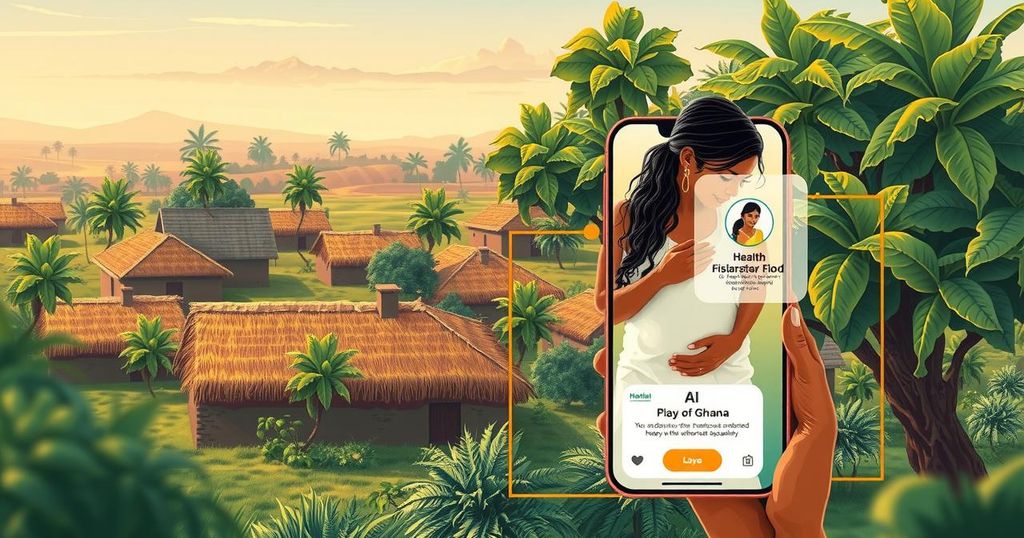The article discusses the introduction of an AI-driven dashboard in Ghana to improve access to emergency obstetric care. Developed in partnership with the OnTIME Consortium, the tool estimates travel times to care facilities, addressing barriers that mothers face. It has successfully aided resource allocation in Nigeria and aims to support Ghana’s ongoing efforts to reduce maternal mortality. The initiative represents a broader commitment to leveraging technology for maternal and neonatal health improvements.
Access to emergency obstetric care remains critical for mothers worldwide, particularly in sub-Saharan Africa, where systemic barriers can impede timely access to medical facilities. Even in urban regions, challenges such as traffic congestion, poor road conditions, and limited public transportation can transform short journeys into perilous ones. Alarmingly, a maternal death occurs every two minutes globally, emphasizing the need for improved access to care.
In 2023, a new dashboard was introduced to assist in overcoming these obstacles by providing insights on emergency obstetric care accessibility. Created in partnership with the OnTIME Consortium, this tool utilizes AI-driven traffic predictions akin to those employed by Google Maps, enabling the estimation of travel times to the nearest facilities. The intention is to empower decision-makers with data to identify and address geographic barriers to care.
The launch of this tool in Ghana is particularly noteworthy as the nation has made significant strides in reducing maternal mortality in recent years. By integrating innovative solutions such as this dashboard, Ghana aims to enhance ongoing efforts targeted at further reducing maternal deaths and ensuring that mothers have timely access to critical care.
In Nigeria, similar applications of this tool have already transformed resource allocation for organizations. For instance, Emergency Resources Africa has successfully repositioned first responders to areas where women may require longer travel times to reach care, showcasing the tool’s potential in real-time interventions.
Dr. Aduragbemi Banke-Thomas, the leader of the OnTIME Consortium, highlighted that the tool provides policymakers in Ghana with an authentic understanding of the challenges pregnant women face in accessing emergency care. This insight enables better prioritization of at-risk areas and the creation of focused response strategies to enhance care delivery.
This initiative complements Google Research Africa’s mission to leverage technology for addressing local and global challenges, already encompassing efforts in food security and environmental issues. The collaborative goal moves toward expanding the dashboard’s application across other nations, ultimately striving to improve maternal and neonatal health outcomes in Africa and beyond.
In conclusion, the introduction of an AI-driven dashboard in Ghana represents a significant advancement in addressing the critical need for emergency obstetric care. By providing precise travel time estimates to healthcare facilities, this tool enables more effective decision-making and resource allocation. The collaboration between various stakeholders underscores the commitment to improving maternal health and reflects an optimistic outlook for future efforts aimed at saving the lives of mothers and newborns throughout Africa.
Original Source: blog.google




